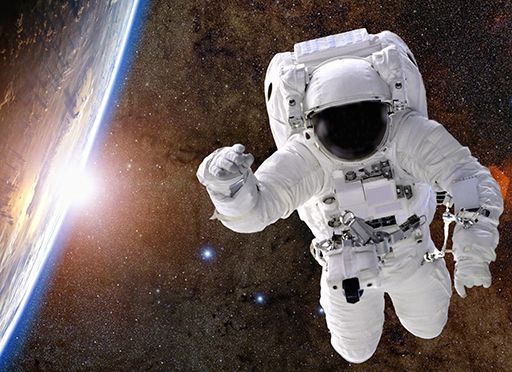Harvard science expert Naomi Oreskes discusses disbelief in science and how scientists can counteract it.

Defense of the Scientific Method
Naomi Oreskes, PhD, is a professor of the history of science and an affiliated professor of Earth and planetary sciences at Harvard University. She is the co-author of Merchants of Doubt. Oreskes’s timely “Tanner Lectures on Human Values” provide a background on the philosophy of science and its history since the mid-19th century. Her solution to disunity is to acknowledge that diverse societies create science. This illuminating account, which features responses from her peers juxtaposed against Oreskes’s thoughtful replies, shows why society needs science more than ever.
The depth and precision of Oreskes’s definition of science and her presentation of its history may surprise laypeople, who likely have little concept of how controversial her approach may be. Politics and fact-deniers have laid siege to science, Oreskes argues; she offers knowledge – and candor from scientists – as science’s best defense.
Ed Gibney, writing in The Philosopher, said, “Oreskes’s definition of science provides us with the best knowledge we can philosophically hope to get.” And New Scientist captures the heart of Oreskes’s intent: “Once we begin to understand the size of the chasm that separates science’s outsiders and insiders, as Oreskes clearly does, we can at least start to design a bridge.”
Trust in Science
Oreskes explains, that since the Enlightenment (1715-1789) society has regarded science as the authority on empirical inquiries about how the world works and humanity’s understanding of it. However, she cautions, in recent years, people have questioned science’s reliability.
A claim that has survived critical scrutiny becomes established fact, and collectively the body of established facts constitute scientific knowledge.Naomi Oreskes
Oreskes cites, for example, an actress expounding – without any scientific proof – on the dangers of vaccinating children or a former US vice president touting creationism. Oreskes sees depleted trust in science as a profoundly troubling social phenomenon.
Correctives
Science doesn’t correct itself, the author asserts; scientists correct each other. Objectivity emerges through the exposure and interrogation of old assumptions.
Oreskes argues that scientists must enforce procedures and practices that ensure objectivity. Society shouldn’t blindly trust in science, she admits, but should maintain informed trust in scientists’ consensual conclusions. The public, she cautions, must be wary of scientists who step outside their expertise.
Inquiry
No one knows which scientific truths will remain valid, Oreskes notes, because scientific ideas face constant interrogation and challenge. That evolution of truths, she says, forms the nature of science.
She details how theory might emerge from observation and offers as an example the fact that science had no working theory of flight when the first planes flew. Oreskes’s thesis is that when scientists admit mistakes, they become better scientists. Constant inquiry, she asserts, promotes progress.
Peer Critique
The author, mirroring the scientific method of peer review invited her colleagues to comment on her theses about why people don’t trust science.
Distrust
Susan Lindee – the Janice and Julian Bers Professor of History and Sociology of Science at the University of Pennsylvania – believes that today’s distrust in science is widespread and disturbing. Oreskes responds that people mostly reject those scientific claims that refute their beliefs.
Scientific Method
Marc Lange – the Theda Perdue Distinguished Professor and department chair in philosophy at the University of North Carolina – points out that if people refrain from criticizing all science, individual scientific accomplishments won’t fall under scrutiny or suspicion.
There is a difference between being suppressed and losing a debate. Sometimes a skeptic is just a sore loser.Naomi Oreskes
Oreskes responds that scientists can be wrong. Because no one knows what constitutes absolute truth, people must rely on consensus as a proxy for truth.
Constant Questioning
Oreskes disagrees with the idea that climate deniers dispute science. Instead, she says, they undermine public trust in science for their political benefit. She makes clear throughout that scientific progress rests on constant questioning, revising and duplicating tests. Everything, she reminds readers, rests on evidence and consensus.
If trust in experts were to come to a halt, society would come to a halt, too.Naomi Oreskes
Oreskes concludes her argument simply: If decision makers act on the basis of current scientific knowledge, everyone benefits. If they don’t, the world and everyone in it will be diminished.
Thorough
Oreskes offers a thorough, sober – perhaps too sober – defense of science and a history of how science built its credibility. Then she discusses how doubt about science arose and characterizes the current state of science in America, where even the most commonsense scientific assertions – that vaccines support public health, for example – face strident challenges from people whose arguments are simply fantasies.
Oreskes raises many telling points, though her writing can be dry and academic. The difficulty – or perhaps the tragedy – of her approach is that almost no one who disagrees with her will read – or likely even hear – of this book. So what is Oreskes’s purpose? It seems to connect to academia, and the discussion of in-field issues with other people in the same field.
That said, this remains a worthwhile, compelling and informative read, especially for undergraduates, commentators and anyone seeking insight into today’s divisive political discourse.
If you find Oreskes’s rigorous curiosity inspiring, Merchants of Doubt, which she co-wrote with Eric M. Conway, will further engage you. Other ancillary readings include What Science Is and How It Really Works by James C. Zimring and Lee McIntyre’s The Scientific Attitude.







